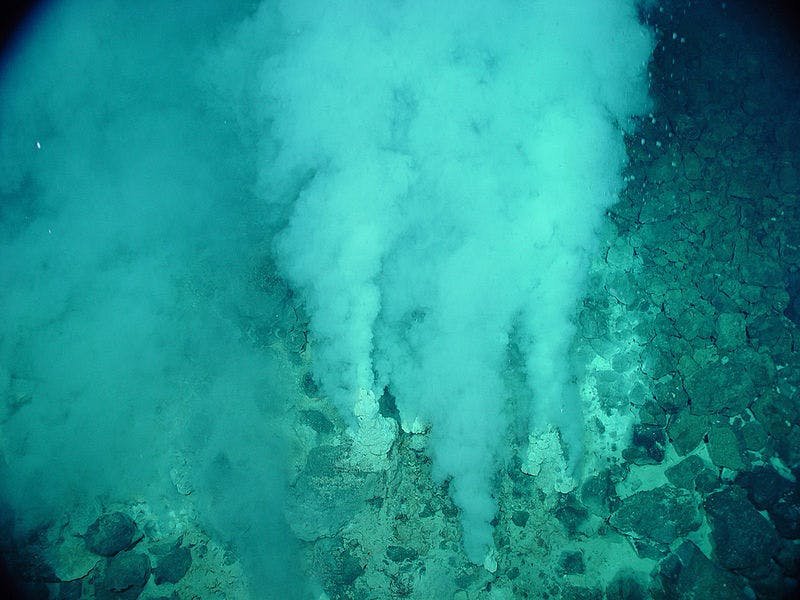One theory for how life emerged suggests that it originated in the sea, at alkaline hydrothermal vents. It’s impossible to observe life-in-the-making in hydrothermal vents nowadays, though, as the seabed has drastically changed in the billions of years since. Instead, researchers at NASA’s Jet Propulsion Laboratory have recreated early Earth’s deep-sea conditions in their lab to experimentally verify this theory.
A team of scientists, led by Lauren White, have built a reactor that mimics early Earth’s geological processes at the bottom of the ocean. By mixing CO2 and hydrogen-rich fluids — proxies for early Earth’s acidic ocean waters and alkaline hydrothermal spew — across a reconstruction of an ancient seafloor, the reactor successfully converted CO2 into simple organic molecules.
…
These simple organic molecules are a far cry from the complex bio-molecules in our bodies today, but it’s a promising start. More importantly, the results demonstrate that these initial chemical reactions are possible under the harsh conditions of a high temperature, high pressure deep-sea environment on a hellish world.
…
If life was kickstarted by Earth’s geological processes, that means life in general may not be a freak accident but perhaps an inevitable outcome, especially on worlds with a similar geology. Mars, Europa, and Enceladus are promising candidates for extraterrestrial life.































